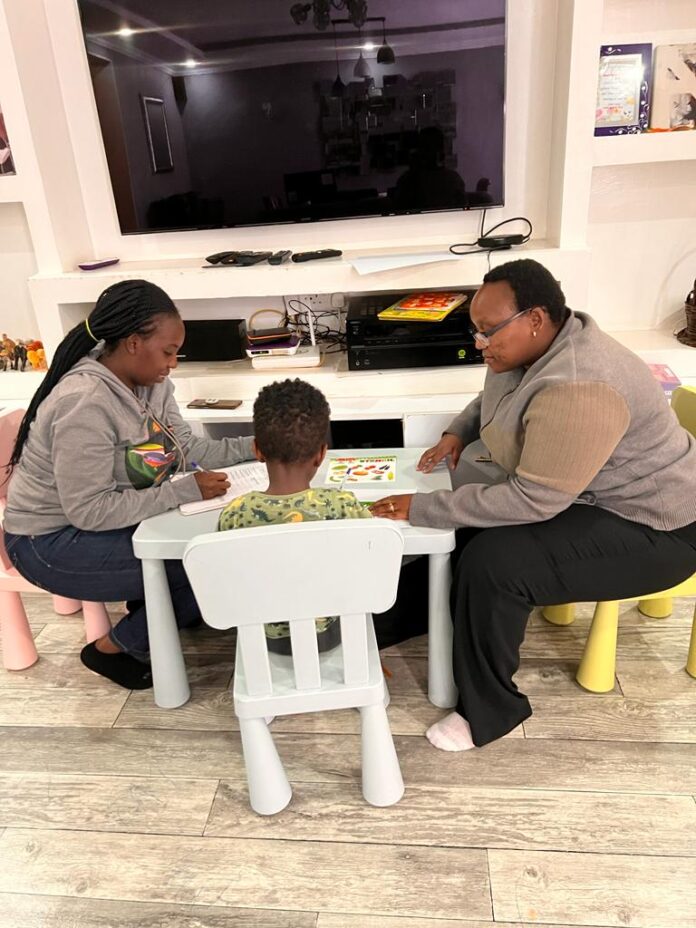By Scovian Lillian
Nairobi, Kenya: Four-year-old Miguel was pulling and hugging his deskmate when we arrived with his mum to pick him up from school after classes. He was grunting while a dozen other pupils sat still in the tiny, cold, dark classroom in informal settlements on the outskirts of Nairobi, waiting to be picked up as well.
On that day, Miguel, who has autism, had been restless. He made noise and pulled at his classmates during lessons. Miguel fears the cane, so whenever he can’t sit still, his teacher points it at him and he retracts, on the verge of tears. That is how she deals with his hyperactivity as caning is prohibited in Kenyan schools.
When he was two years old, his mother, Mary Gachoki (34), noticed that he displayed traits associated with autism – stimming, finger flapping, regression in speech, lack of eye contact, and delayed milestones. She had undertaken a caregiving course in College.
“My firstborn daughter aged eight has cerebral palsy. I did not want to imagine that my second-born Miguel was autistic. I took him to the Kenyatta National Hospital for a checkup and a doctor suggested that I take him to the (KISE) for assessment. When the diagnosis confirmed that he is autistic, it felt burdensome because I am a single mother. I am not strong mentally. I need support and reassurance that Miguel will be okay someday. He is a good son, very sharp and I love him,” said an apprehensive Gachoki.
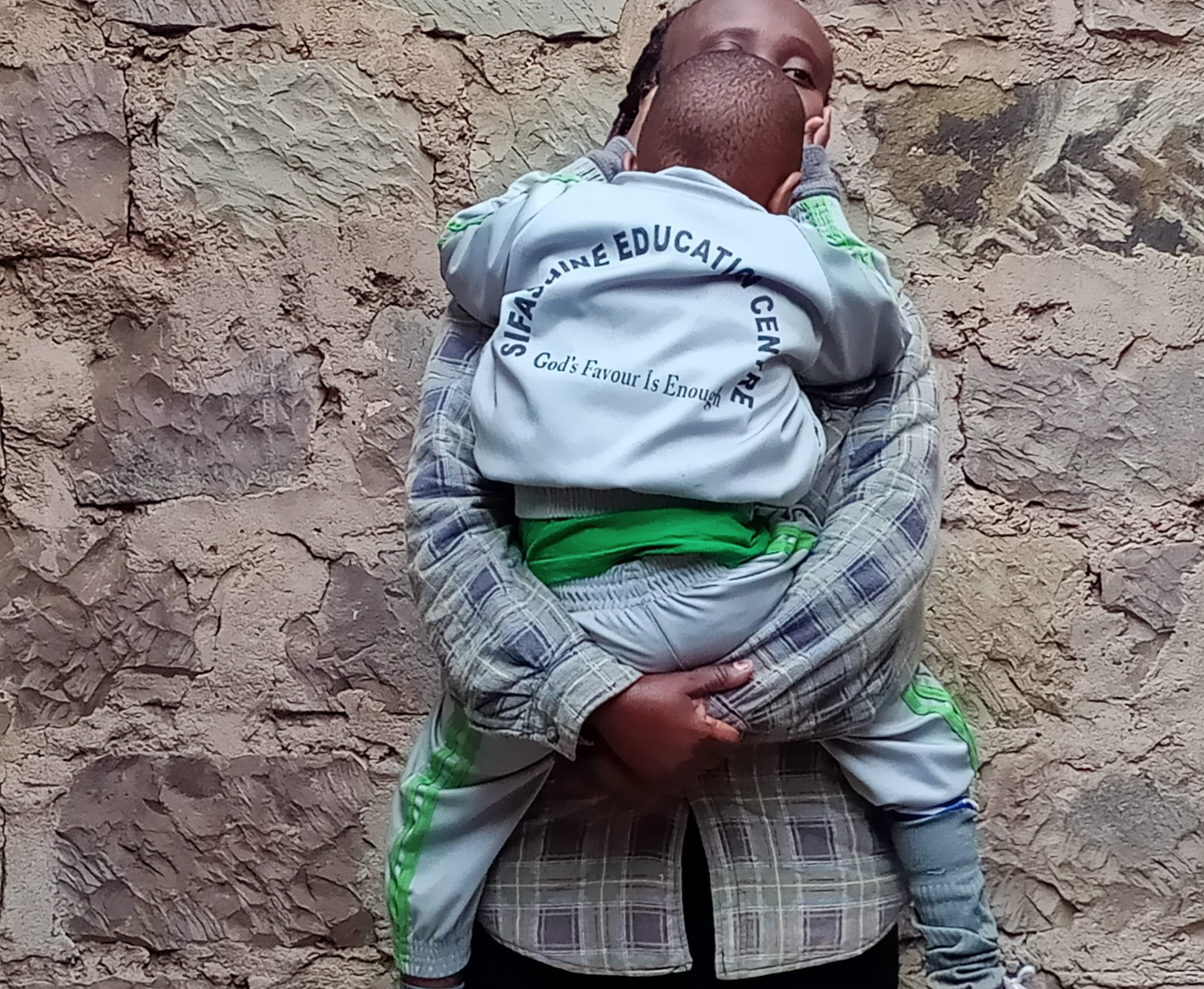
She lives in a tiny single room in an informal settlement on the outskirts of Kenya’s capital, Nairobi. On that day after the diagnosis, she managed to pay (Kshs.1,500) for a heated pool therapy session for her son, and since then, she has never managed other sessions due to financial hurdles
Families like Miguel’s live with stigma, isolation, and chronic lack of support. Data from the Institute for Health Metrics and Evaluation’s Global Burden of Diseases indicate that in 2019 the number of children with autism increased from 24,719.83 to 35,627.67 in Kenya. Globally, while reported prevalence varies substantially across studies, the World Health Organization estimates that worldwide, about 1 in 100 children has autism.
A study published in the Journal of Pediatrics in 2022 showed that there is limited literature on the prevalence of (ASD) in Africa. It calls for more research “to improve care rendered to children living with ASDs in Africa. There also needs to be a focus on caregiver burden or experience for parents/guardians of children living with ASD, detection of children living with ASD in Africa, and interventions for children living with ASD in Africa.”
Luke Laari, Lecturer in the Department of Public Health and Nursing at the University of Ghana and lead author of the study says: “Most caregivers are not aware of any interventions that can assist their children to live independent lives. This is because most parents see this as normal and will not seek any help but this is due to inadequate knowledge about this disorder, especially those in rural areas”.
The hallmarks of ASD can be detected in early childhood. Early diagnosis and interventions lead to better outcomes for children with autism, so raising awareness is crucial, says Dr. Lillian Kerubo, a pediatrician at the Kiambu County Hospital in Kenya. She says that the information gap on ASD in Africa is due to a lack of willing study participants. She adds that most parents live in denial of the diagnosis of their children, and refuse to participate in studies for fear of stigmatization which affects advancements in special needs care.
“Many parents especially in the rural areas need to know that an autistic child is a normal child. They should accept them for who they are and support them in life, but most importantly, they need to learn more about autism, understand autism, and manage their expectations,” says Kerubo.
What early intervention looks like
In a different part of Nairobi, seven miles from the Central Business District in a commercial and residential neighborhood, a scene is playing out that’s very different from Miguel’s dark, cramped classroom. Two young brothers jump and giggle with their dad on an indoor trampoline. The nanny helps their little sister jump too, while counting from one to ten. Their mother is seated on the couch, cheering them while recording on her phone.
Orville, aged five, and Ethan, aged three, were diagnosed with autism spectrum disorder (ASD), and are receiving physical and mental therapy.
The jumping therapy improves the sensory needs of the two brothers. In a different session, Orville, with the help of his therapist, identifies colors and practices sequencing with bottle tops. His eye contact has improved and he can look at his therapist in the eye after consistent sessions of Applied Behavior Therapy.
“Orville loves the outdoors, while Ethan loves being indoors. So, we bring outdoor activities indoors and vice versa to engage them both,” says Caroline Ndebu, their mother.
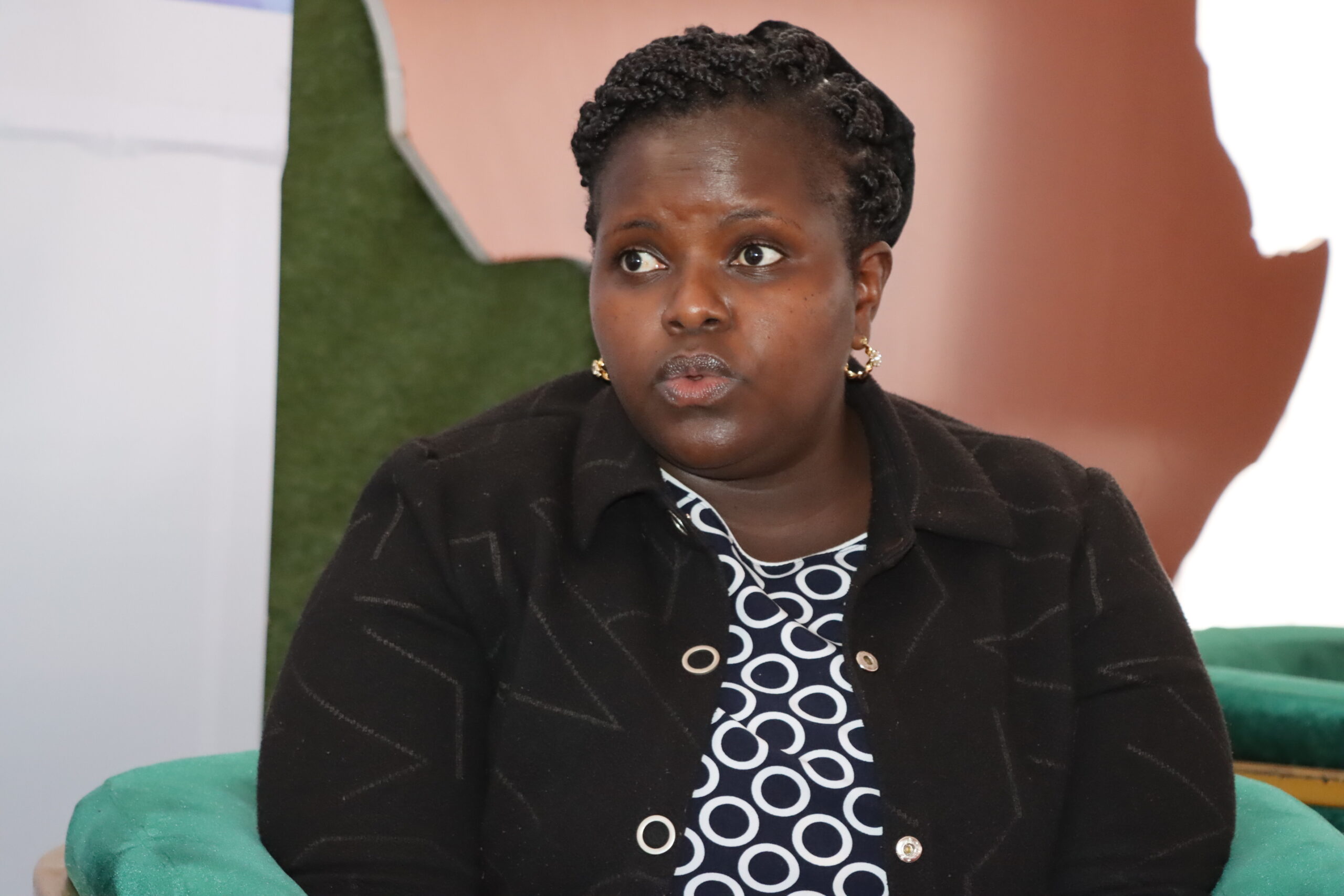
“It can get overwhelming. Some days are tough, and others are easy… It does not end with therapy as we have to put in a lot of work for the boys,” she says with a smile.
Her firstborn, Orville was almost two, with all his developmental milestones checked, before he regressed.
His parents noticed him pulling his ears, and then he lost his speech and became antisocial and a picky eater.
Ndebu’s elder siblings who had older children advised the couple to seek a doctor’s intervention. After many diagnostic tests that took several weeks, the doctor confirmed that their son was autistic and prescribed therapy.
“He would cry a lot during therapy, so we changed tactics and switched to home-based therapy,” Ndebu explained.
Ethan’s case was not severe like his brother’s. Between 18 to 24 months, he had achieved early childhood developmental milestones but he started regressing in speech, stopped pointing at things, and became unsociable. Qualified assessors at his school said that Ethan was autistic.
“Seeing what happened to Orville, we immediately put him on occupational therapy and speech therapy to build his cognitive ability. He picked up well and they do therapy together.”
Ndebu didn’t know much about autism, so she sought to improve her knowledge of autism, and after research, she joined a caregivers’ WhatsApp group. There, she found some parents had children with more severe cases and only picked information that was relevant to her.
A study, published in May 2022 in the Journal of Pediatrics found that autism spectrum disorder has not been extensively studied in Africa, hence ASD treatment deficits and secondary problems in youth with ASD in developing Countries.
Dr. Kerubo believes that creating awareness about autism can be achieved through identifying “champions” (parents and caregivers) who resonate with the empowerment message and training them to empower other parents with autistic children while quashing myths and misconceptions about autism. For instance, some parents believe that delayed milestones are normal and common in boys, that eating a lot of eggs while pregnant causes autism, or that autism is witchcraft.
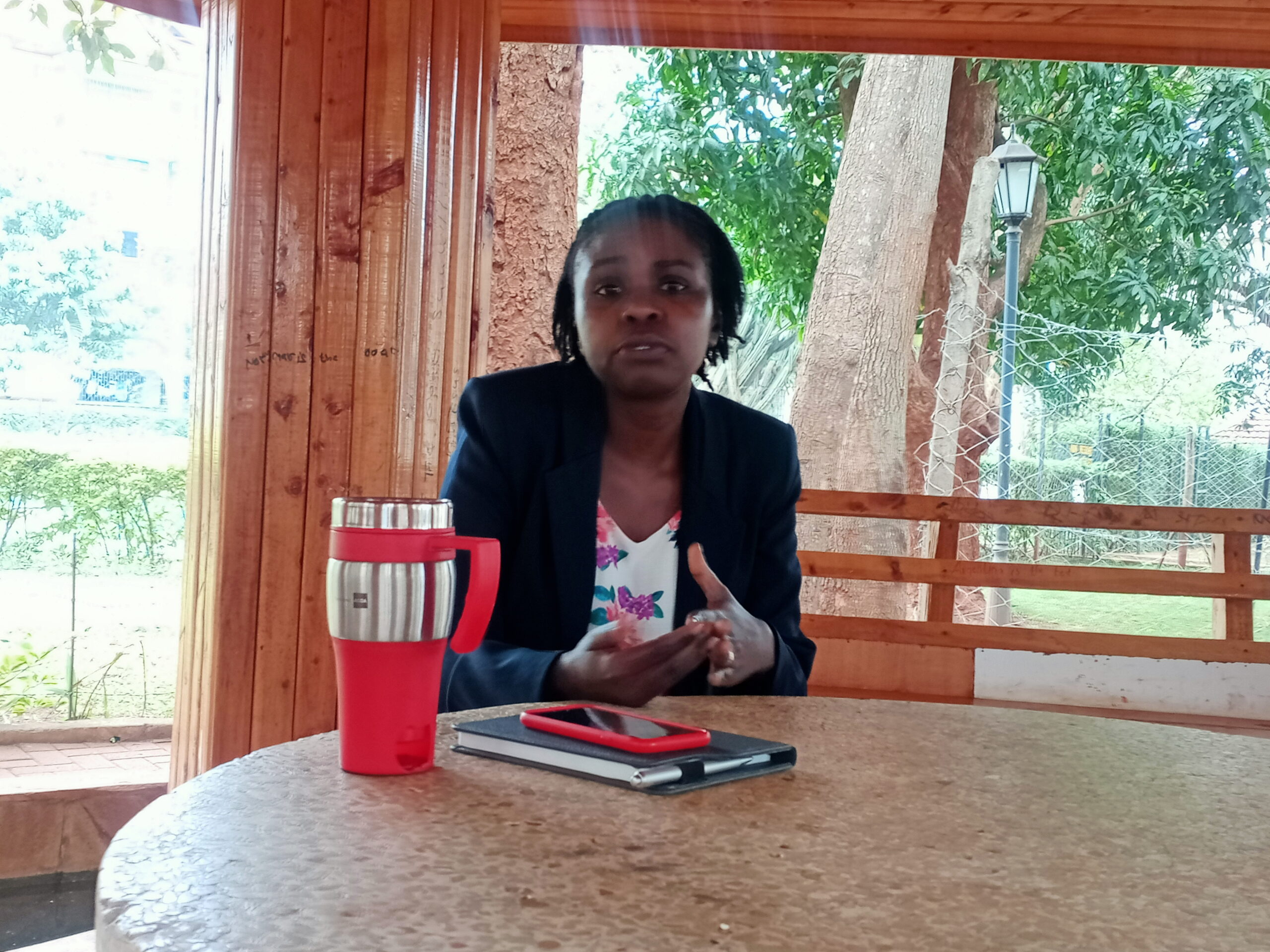
Dr. Kerubo says that part of therapy involves helping parents and caregivers understand that autism is not a disease.
“Autism is not a disease, so we don’t aim to eradicate it. However, we can alleviate challenging symptoms like irritability and difficulty sleeping. Besides therapies, medicines can be prescribed especially for those with severe autism. Therapy depends on the deficit.”
Working toward change
Early in her journey, Ndebu found that most of the caregivers and parents she met lacked knowledge of how to care for a child with autism.
The experience birthed Gifted Gems, a non-profit organization, to raise awareness about autism, build a repository of information, train caregivers, and provide support systems for them. Their goal is the holistic inclusion of people with special needs in society.
Such initiatives help parents like Evelyne Kiarie, whose son Mathew has autism.
Two miles from Nairobi’s capital, four-year-old Mathew is in his therapy session at their house.
Which color is this? – Red.
And what shape is this? – Square.
And which color is this? – Blue!
Mathew, his brother, and his therapist break into applause. He has passed the test! The therapist hugs him.
Mathew began exhibiting signs of autism a week before his third birthday. He stopped interacting, stuffed inedible things in his mouth, threw tantrums, regressed in speech, stopped pulling his parent’s hands, and avoided eye contact.
“I didn’t know anything about autism, and neither did my husband. I just knew that it was normal for boys to climb on things and that delayed speech was a common thing in children. You know autism is not spoken about a lot in this country so I thought it was okay,” said Kiarie.
But this family was fortunate to receive an early diagnosis and timely support. A family member who is a doctor noticed the signs and advised the parents to seek medical intervention. They received a long checklist with signs of autism, and most of them were positive. They began appl behavior therapy right away. Mathew later started occupational therapy and began schooling to build his social skills. He is making progress.
“Having a clear routine and schedule upon waking up helps him,” says Kiare.” He loves puzzles but gets agitated about learning new things. Unlike before, he now has a sense of danger, and we achieved this through swimming lessons. He also loves threading, buttoning, and picture reading.”
Like Ndebu, she is in a 736-member WhatsApp support group of caregivers and parents called Autism Mums KE.
“It can be overwhelming. Sometimes one wishes to have a break. I envision what the future will be like for him, wondering if he will be independent. This keeps me up at night and makes me research intensively,” Kiarie added.
The worries that keep parents like Kiarie and Gachoki up at night can be resolved by bridging the knowledge gaps, especially in rural regions, says Peter Mucheru, a speech and language therapist at Tower Valley School in Kiambu Kenya. He explained that caregivers need knowledge of child development and milestones to spot the signs and seek early intervention.
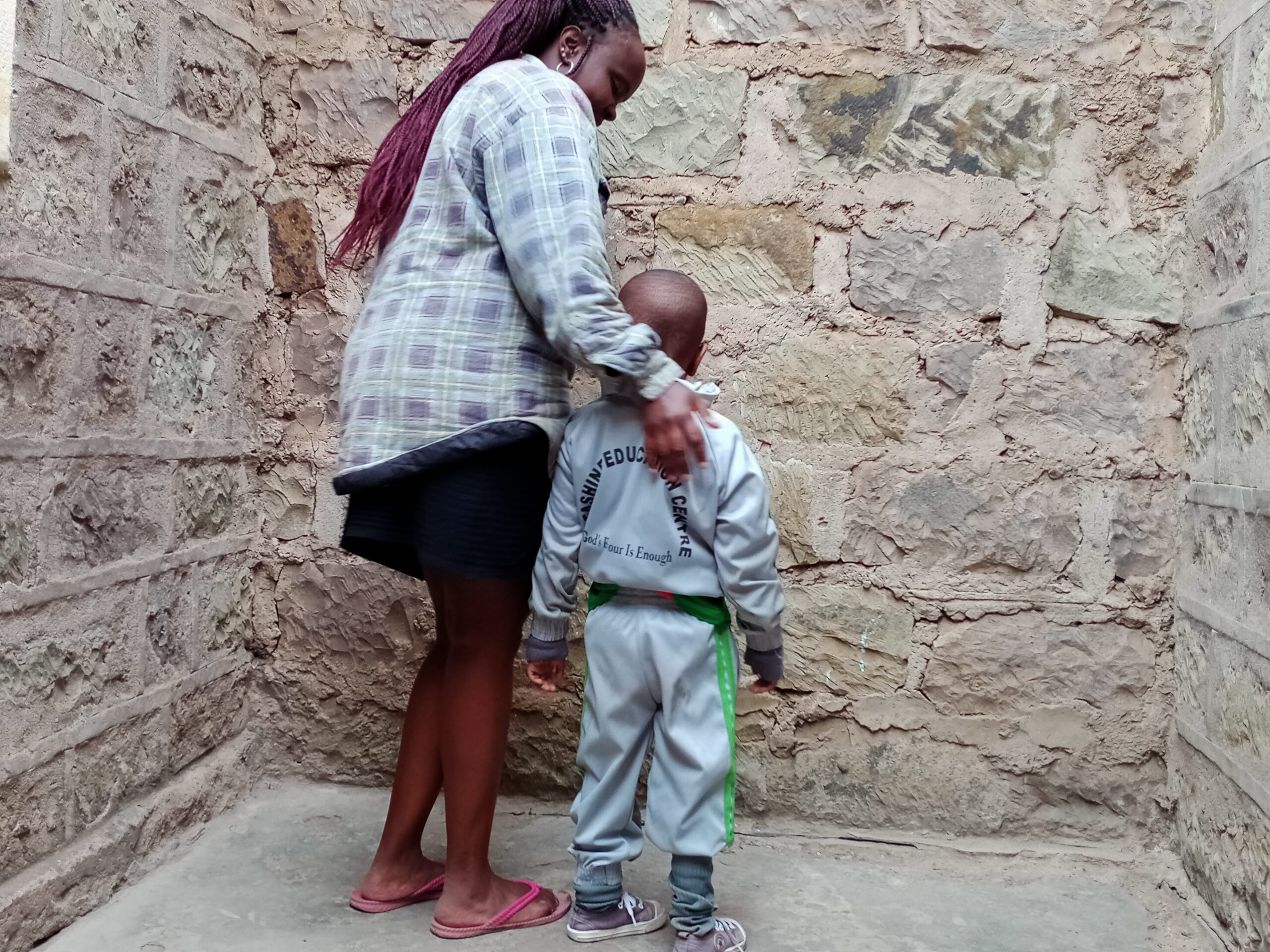
“Early intervention determines the most effective therapy. Even if a parent has [help with childcare], it is crucial for them to fully take part in their children’s developmental progress and monitor their child’s milestones,” he said.
To empower parents and teachers with knowledge and champion inclusion, Mucheru extends his outreach efforts to other local schools. Dr. Kerubo says that such education campaigns should be championed not just by teachers and parents, but also by the World Health Organization, (WHO), governments, and health practitioners for maximum impact.
“There is a need to embrace inclusivity and invest in research to not only support Kenya but Africa at large in programs for equal access to healthcare and education. We need to put up early childhood development areas in all the hospitals to assess and monitor well-baby clinics. Quit using stigmatizing words,” Kerubo expounds.
She adds that healthcare professionals should seek to learn more about autistic children, understand them, and empathize with them rather than feel sorry for them.
Out of the six caregivers interviewed for this story, three did not want to be featured even as anonymous sources, their autistic children are not receiving any form of therapy, nor do they intend to seek help for fear of stigma. As for Gachoki, he holds on to hope that one day she will be able to afford full therapy sessions for his son.
“I’ve heard that there are autistic people who have turned out well in life and doing great things around the world, that is exactly what I hope for my son”, she said.

